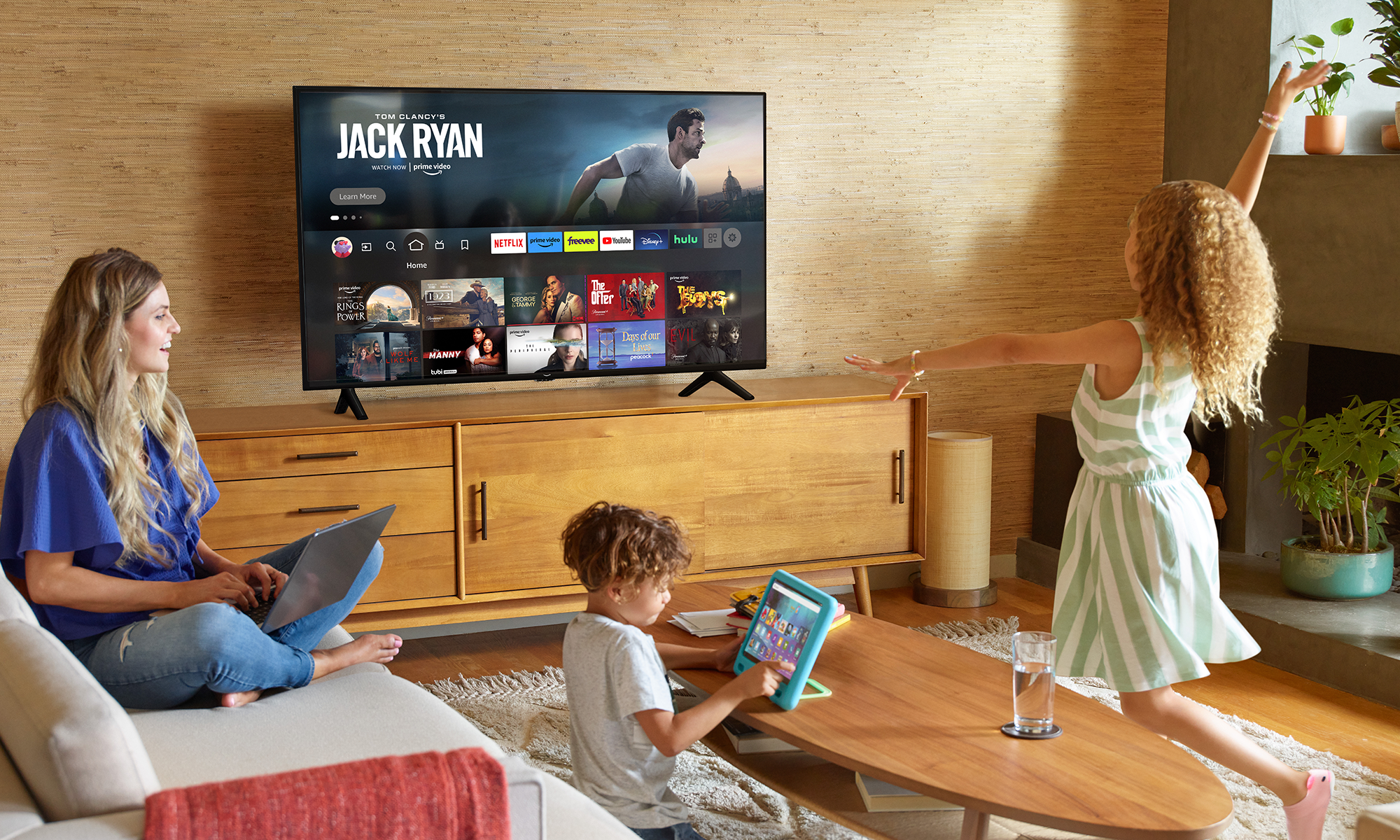Amazon.com (AMZN +0.06%) recently announced its first smartphone, the Fire Phone, a highly anticipated device that represents Amazon's continued push into selling hardware. But, Amazon's hardware strategy has clearly changed, as the Fire Phone is priced similarly to premium smartphones like Apple's (AAPL 0.19%) iPhone 5s. This is in stark contrast to the bargain-basement pricing of Amazon's Kindle Fire tablets, and it raises some questions about how successful Amazon's hardware has really been.

Source: Amazon
Amazon's tablets are doing well, or are they?
Amazon has managed to win a decent share of the worldwide tablet market with its Kindle Fire line of tablets. During the fourth quarter of 2013, Amazon came in third, behind Apple and Samsung, with a 7.6% market share, moving 5.8 million units during the quarter. The low prices of Amazon's tablets are a big factor in its success, as Amazon's strategy has been to sell the hardware at, or near, cost in an effort to get tablet buyers to purchase more items from Amazon.
For Amazon, every Kindle Fire tablet out in the wild represents a storefront, and by all indications, Amazon's tablets have been a success. Why, then, has Amazon strayed from this strategy with the Fire Phone? Why isn't the Fire Phone priced at cost? Off-contract, Amazon's phone costs a whopping $650, and on-contract the $199 price tag is the same as Apple's iPhone 5s. Amazon is attempting to actually turn a profit from the hardware itself, and that goes against the hardware story that has been fed to investors.
One theory is that the tablets haven't spurred enough additional sales to justify selling them at such a low cost. Sales of movies, TV shows, and music are just a small fraction of Amazon's total revenue, and if people aren't using the tablets to buy physical products from Amazon, the whole hardware strategy falls apart. Because the tablets are priced so low, people may be buying them simply due to the price. These people probably aren't Amazon Prime members, and they probably aren't going to increase their spending on Amazon as a result.
The high price of the Fire Phone provides one piece of evidence that this theory might be correct. If that's the case, Amazon has now simply become another smartphone manufacturer in a market where only Apple and Samsung manage to make any money. Since every mobile device under the sun already has an Amazon app, making it relatively easy to purchase things through Amazon, there doesn't seem to be much point to Amazon making a phone. The Fire Phone has some features that are supposed to differentiate the device, like a 3-D effect, but they seem little more than gimmicks.
Why is Amazon making a phone?
Because the Fire phone is priced so high, it's unlikely that Amazon's plan is to use the Fire Phone to spur spending on Amazon. The company is giving away a free year of Prime to people who buy the phone, so perhaps Amazon is targeting existing Prime members. But, since you can buy Amazon products from any smartphone, and Amazon's Firefly feature on the Fire Phone is little more than a glorified price scanner, the Fire Phone seems like a tough sell.
Amazon is getting distracted, which threatens its core business. There's no question that Amazon has been wildly successful as an online retailer, but Amazon has no advantages when it comes to hardware. The company appears to be suffering from "diworsification," a term coined by legendary investor Peter Lynch to describe a company that diversifies into markets where it has no advantages, causing the company to suffer. Amazon may think it has the Midas touch, but it doesn't. It's a retailer trying to be something that it's not, and that's a story that never ends well.
The Fire Phone is not a threat to Apple or Samsung. For the same price as the Fire Phone, you can get a device made by a company whose business is to make compelling devices. Apple's iPhone comes with the vast Apple ecosystem, and Samsung's Galaxy smart phones have all that Google has to offer. But, although Amazon's Fire Phone runs a fork of Android, it's missing Google Play and all of Google's popular apps, leaving it hobbled compared to the competition.
The bottom line
With so many other ways to buy products from Amazon, releasing its own smartphone makes no sense. While the low price of Kindle Fire tablets helped sell units, the shift to a premium pricing model for the phone suggests that the company's grand hardware strategy isn't working. The Fire Phone looks like it's going to bomb, and Amazon investors should be worried about the company's increasing level of distraction.







